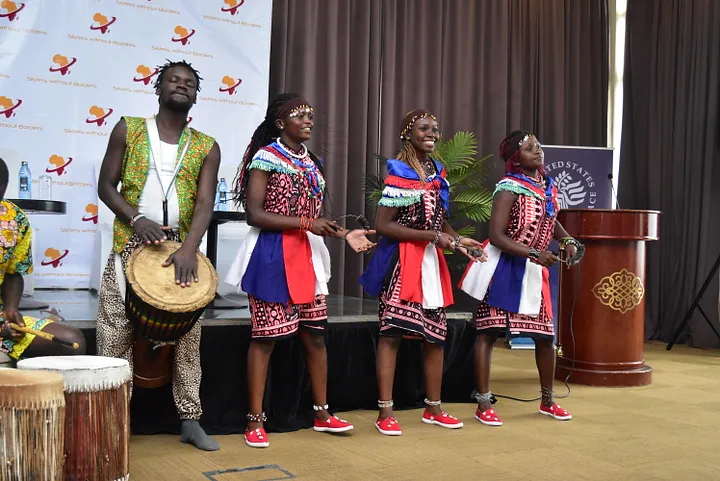Address
Cassia Court Complex , Kiambere Rd , Nairobi Kenya
Work Hours
Monday to Friday: 8AM - 5PM
Address
Cassia Court Complex , Kiambere Rd , Nairobi Kenya
Work Hours
Monday to Friday: 8AM - 5PM

The mastery of networking is believed to be one of the core skills that has accelerated the success of some of the most powerful and influential individuals in today’s society. Networking among organizations, is as important as it is among individuals; creating relationships and connections which enhance information sharing, build capacity and support positive social change.
Sisters without Borders (SWB) is one such network. SWB brings together women leaders from various organizations in Nairobi, Mombasa and Garissa. Formed in 2015, the network formal structure allows it to leverage the personal experiences of individual members and their organizations to enrich areas of common interest such as Prevention of Violent Extremism (PVE). The network is housed at Women In International Security -Horn of Africa (WIIS-HoA) functioning as its secretariat and founding partner.
On the 26th of June 2019, SWB brought a cross-section of actors, among them envoys, CSOs, government and media houses, to a formal launch of the network in Nairobi. The launch, supported by United States Institute of Peace (USIP), also marked the expansion of the network to the Horn of Africa region. It provided a unique opportunity for the sisters to share challenges, strengths and areas of opportunities with the 70 guests in attendance. The attendees also got a chance to walk through a first viewing of the WIIS-HoA “faces of reliance” photo exhibition.
The event was marked with key address from Ms. Fauziya Ali; President WIIS-HoA and Chair of SWB, Ambassador Martin Kimani, Director of the National Counter Terrorism Center; the US Ambassador to Kenya; Ambassador Kyle McCarter, and the Chief Administrative Secretary — Ministry of Foreign Affairs Hon. Ababu Namwamba.
Key challenges highlighted by the network members included frequent threats to the women’s personal security. Extensive social media use among the youth was also determined to be an emerging yet rapidly evolving threat, given that the militia groups are well established in these wide reaching online platforms.
The strengths of the network was highlighted, where the members underscored the diverse intergenerational and interreligious nature of its membership. The network which is women led focuses on uplifting women and girls, empowering security actors and other stakeholders to engage women directly in peace and security while maintaining the trust of the communities they serve.
Looking forward, stakeholders were urged to pay more attention to the gender specific impact of terrorism. Women were also encouraged to take advantage of opportunities in sectors traditionally considered to be the purview of men. Strategic partners were requested to support processes that equip women with relevant skills in readiness for available positions.
The continued commitment of the Kenyan government towards gender mainstreaming in PVE was brought out by the fact, gender is now one of the key pillars in the revised NSCVE. SWB members were therefore encouraged to participate in the implementation phase of the County Action Plans (CAPS) on P/CVE within their respective counties. The NCTC pledged support for the SWB network but insisted that states must do more to prevent violent extremism.
Hon. Namwamba, underscored his Ministries deliberate effort to put gender issues at the forefront. This is done through concerted efforts with local and international partners to break down barriers to the engagement of women. He praised efforts by women in the Horn region for their role in supporting peace building efforts and standing up to violence and extremism.
In his speech, Amb. McCarter reiterated the commitment of his government to sponsoring women led organizations, like SWB, as well as celebrating and empowering international women of courage. He went on to commend the SWB network through their Chair, Ms. Fauziya Ali, for their expansion plans, citing it as a true sign of the network’s success.
SWB has demonstrated that women led organizations can forge meaningful relationships through networking, thus allowing them to achieve more within their spheres of interest. It is evident that the SWB model provides best practices that are worth replicating in counties across the East African region and beyond.